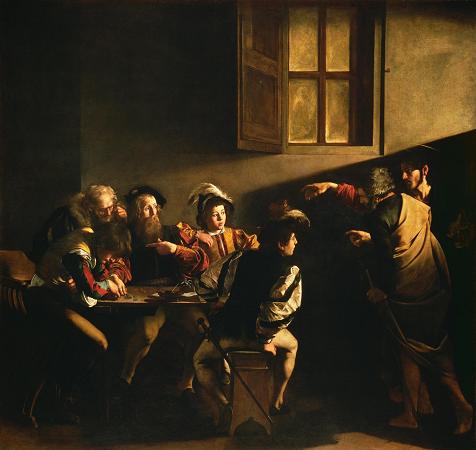Scipione Borghese (1577 - 1633). Scipione Borghese was an Italian Cardinal, art collector and patron of the arts. A member of the Borghese family, he was the patron of the painter Caravaggio and the artist Bernini. His legacy is the establishment of the art collection at the Villa Borghese in Rome. Originally named Scipione Caffarelli, he was born in Artena, the son of Francisco Caffarelli and Ortensia Borghese. His father ran into financial difficulties, so Scipione's education was paid for by his maternal uncle Camillo Borghese. Upon Camillo's election to the papacy as Pope Paul V in 1605, he quickly conferred a cardinalship on Scipione and gave him the right to use the Borghese name and coat of arms. In the classic pattern of papal nepotism, Cardinal Borghese wielded enormous power as the Pope's secretary and effective head of the Vatican government. On his own and the Pope's behalf he amassed an enormous fortune through papal fees and taxes, and acquired vast land holdings for the Borghese family. Scipione received many honours from his uncle. He became superintendent general of the Papal States, legate in Avignon, archpriest of the Lateran and Vatican basilicas, prefect of the Signature of Grace, Abbot of Subiaco and San Gregorio da Sassola on the Coelian, and librarian of the Roman Catholic Church. He also assumed the offices of Grand Penitentiary, secretary of the Apostolic Briefs, Archbishop of Bologna, protector of Germany and the Habsburg Netherlands, of the Orders of Dominicans, Camaldolese and Olivetans, of the Shrine of Loreto and of the Swiss Guard, and numerous other ecclesiastical positions. In each of these offices the cardinal received stipends. His income in 1609 was about 90,000 scudi, and by 1612 it had reached 140,000 scudi. With his enormous wealth, he bought the villages of Montefortino and Olevano Romano from Pier Francesco Colonna, Duke of Zagarolo for 280,000 scudi. As Cardinal Nephew, Borghese was placed in charge of both the internal and external political affairs of the Papal States. In addition, Paul V entrusted his nephew with the management of the finances of both the papacy and the Borghese family. Borghese aroused a great deal of controversy and resentment by utilizing numerous gifts from the papal government to fund Borghese family investments. Identifying rental properties as the most efficient means to ensure financial stability, he purchased entire towns and other extensive properties, including approximately one-third of the land south of Rome. Exploiting his authority as Cardinal Nephew, he often compelled owners to sell their holdings to him at substantial discounts. Borghese thus ensured that the fortunes of the family were not permanently dependent on ecclesiastical office. Cardinal Scipione Borghese died in Rome in 1633 and is buried in the Borghese chapel in Santa Maria Maggiore. Contemporaries commented on the near-public scandals that resulted on occasions from Scipione's possible homosexuality, reflected in his taste for collecting art with strong homoerotic overtones. In 1605, Scipione allegedly angered his uncle the pope by bringing Stefano Pignatelli, to whom Scipione was closely attached, to Rome. According to the later writer Gaetano Moroni, Scipione, mindful for Stefano's affection, invited him to Rome and admitted him to his court, where Stefano acquired such an ascendancy over the cardinal that he did everything according to his advice. It was enough for envy and jealousy among courtiers to utter malicious and venomous calumnies against him, which prompted cardinals and ambassadors to report to the pope that Stefano was full of loathsome vices, and that for his nephew's honour, it was necessary to banish him entirely. Scipione subsequently fell into a long and serious sickness, and only recovered when Pignatelli was allowed to come. The pope decided to keep a check on Pignatelli and had him ordained, the beginning of a career which led to him becoming a cardinal in 1621. Indeed, the Italian historian Lorenzo Cardella notes that Pignatelli was cleared twice by the Roman Inquisition of having improper influence on Cardinal Borghese. However, more recently published espionage reports of Giovanni Antonio Marta speak against the results of such official investigation and substantially confirm the homosexual inclinations of Cardinal Scipione.
more...







